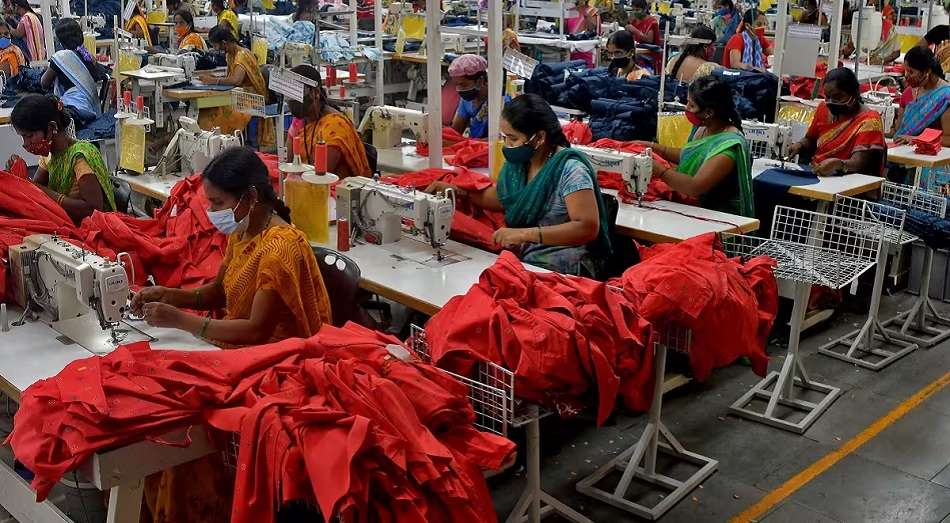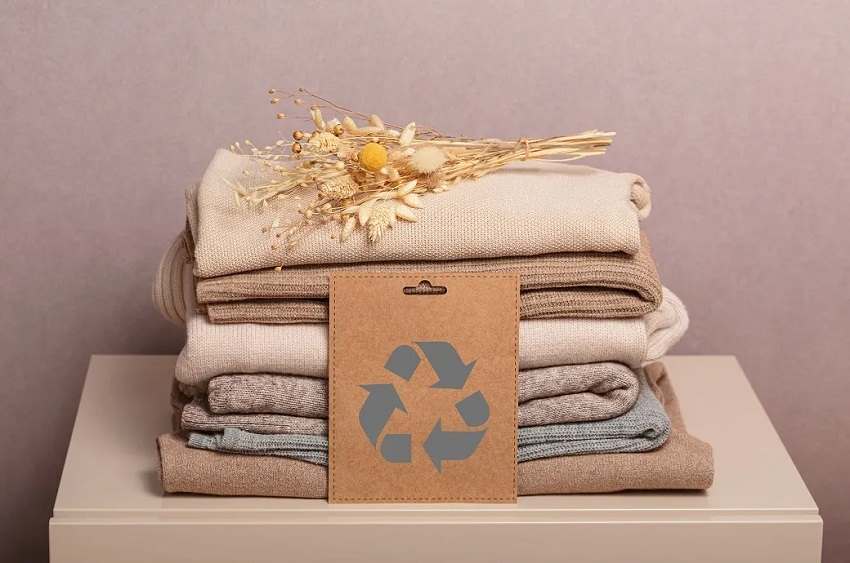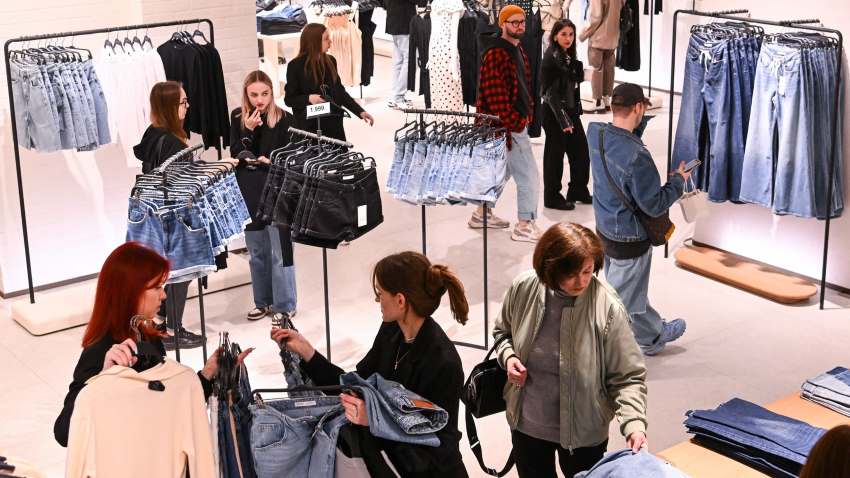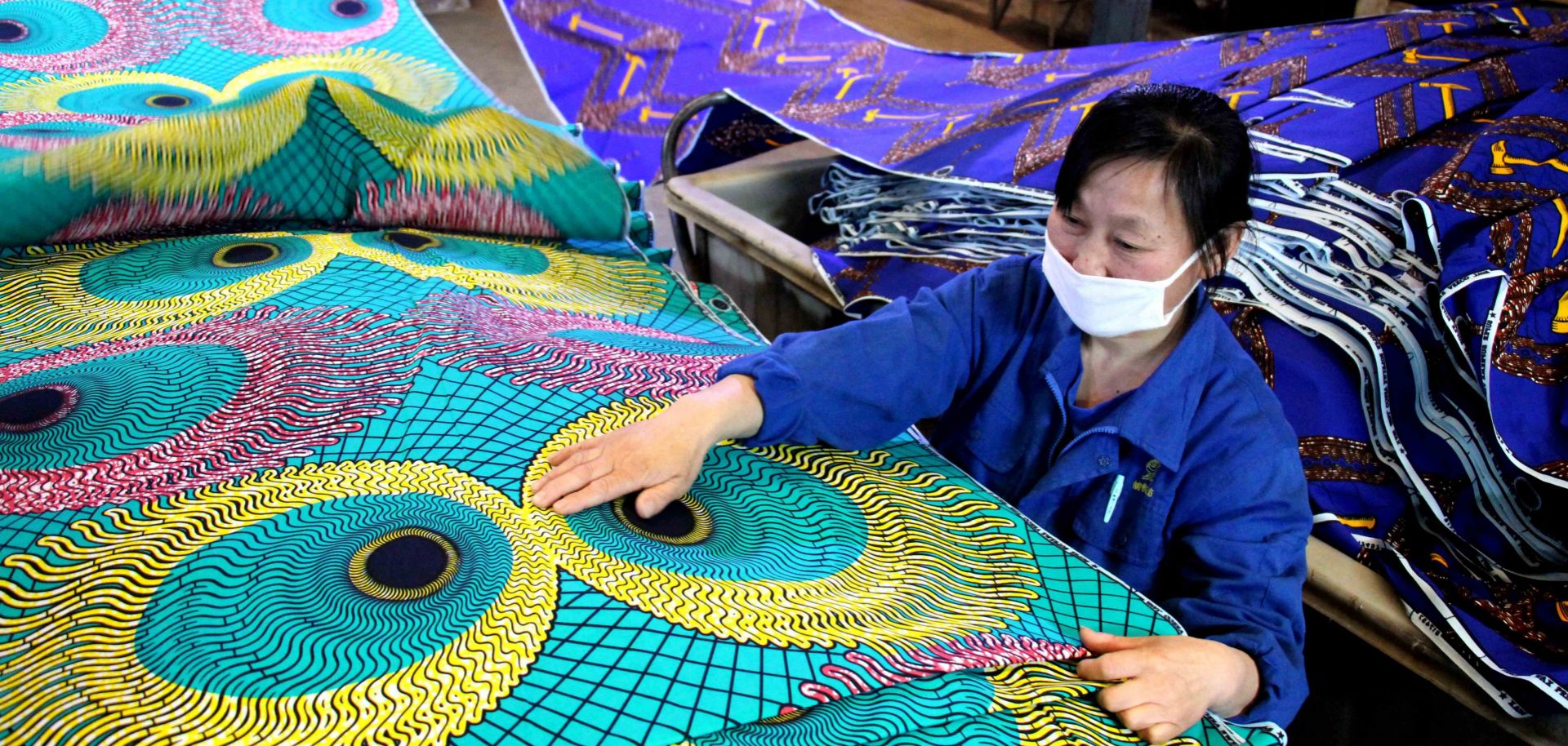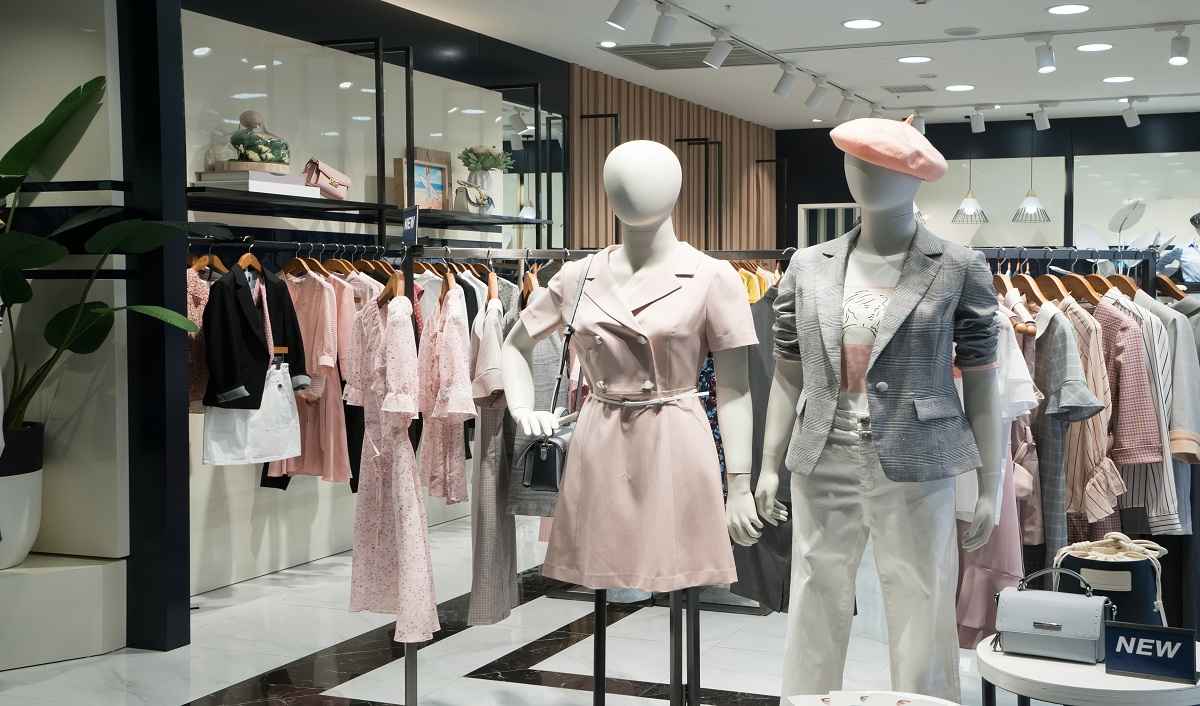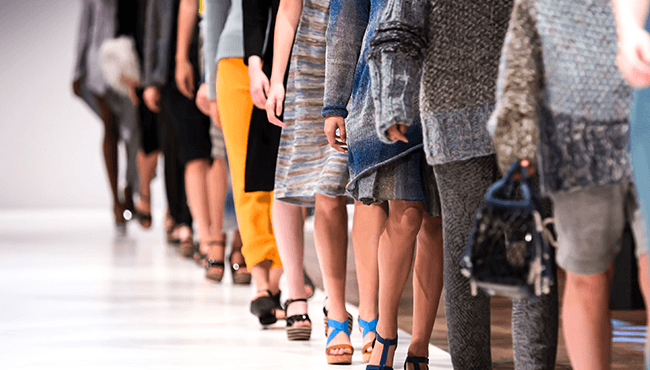Currently negligible Indian textiles and apparel export to Russiaare expected to grow multi-fold once both the countries set a mechanism to accept payments in local currency. The country’s central bank, The Reserve Bank of India is working on building a reference exchange rate framework between rupee and rouble.
Once the framework is established, RBI and Central Bank of Russia will announce customized common reference exchange rate on daily basis, on which importers and exporters can negotiate pricing of the products and payment transactions. This will promote bilateral trade in local currencies bypassing the US dollar.
While Russian banks will open accounts in Indian banks to deposit rouble, Indian banks will have to open account in Russia to deposit rupee, sources said.
Traditionally, India is exporter of textiles and apparel, while Russia imports them to meet its regular clothing needs.
Last year, India’s apparel export to Russia accounted for 0.46 per cent of India’s total apparel export of $14.472 billion compared to 30.44 per cent to the US and 13.27 per cent to the UAE.
India’s apparel export to Russia declined sharply due to COVID-19. The export declined to $57.674 million in 2020 from $75.326 million of 2019. India had shipped garments worth $66.394 million in 2021 while the export was recorded at $76.571 million in 2018 and $84.532 million in 2017.
The Hong Kong Research Institute of Textiles and Apparel (HKRITA)’s research project – “Green Machine” – was awarded with the 2022 R&D 100 Awards in the category of Process/Prototyping.
Established in 1963, the R&D 100 Awards is the only science and technology awards competition that recognizes new commercial products, technologies and materials for their technological significance that are available for sale or license.
The Green Machine provides a hydrothermal solution to separate and recycle cotton polyester blended textiles at scale. The process uses only heat, water and less than 15 per cent of a biodegradable chemical to selectively decompose cotton into cellulose powders, thereby enabling the separation of the polyester fibers from the blends. The separated fibers are ready for reuse, while the cellulose powders can be converted into regenerated cellulose fibers and a durable water-repellent finishing reagent, or transformed into superabsorbent polymer for agricultural application. In 2020, the first industrial scale Green Machine was set up in PT Kahatex (an established textile manufacturer) with a processing capacity of 1.5 tons per day. ISKOTM, one of the world's leading denim producers, signed a licensing agreement on the Green Machine in 2021.
A clothing retailer from the UK, Next has increased its stake in Reiss to 51 per cent.
The British fashion retailer had bought a 25 per cent valuing £200 million in 2021 as a part of a long-term partnership. It had revealed plans to buy another 26 per cent at pre-agreed terms. It exercised its rights and increased its stake to 51 per cent in the company in April 2022.
Next believes Reiss can now benefit from former’s extensive infrastructure capabilities – in addition to serving as a launch pad for the latter’s growth plans in the UK and overseas.
Reiss will continue to retain management authority. The British clothing retailer generates £3,284.1 million and is also known for its footwear and home products.
The Bremen Cotton Exchange and the Bremen Fibre Institute e.V will jointly organize the 36th International Cotton Conference Bremen on September 29-30, 2022. Under the theme “Cotton Decoded” the conference participants will be offered an ambitious programwith topical lectures and lively discussion groups on location in Bremen as well as online via a conference platform.
Strong keynotes will also ring in the two conference days of the upcoming conference. Colin Iles, Executive Manager, Marketing Cotton & Sugar at the internationally acting raw material concern Glencore/Viterra, Rotterdam, will cast a glance into the future of cotton.
The second speaker of the opening session will be Nils Haupt, Head-Communications, Hapag-Lloyd AG, Hamburg, the biggest shipping company in Germany and the fifth biggest shipping company in the world. Haupt will address the future of maritime transport and questions of sustainability in cargo and also elaborate on the challenges within global supply chains.
On the second day of the conference, John Baffes, Chief Economist-Development Perspectives, World Bank, will provide fascinating insights into current economic developments from the perspective of multinational development bank.
This year´s International Cotton Conference is taking place in the anniversary year of the Bremen Cotton Exchange. The organization was founded in 1872 and is celebrating its 150th birthday this year. The conference venue this year is not the historic town hall, but the Chamber of Commerce in Bremen in the immediate vicinity of the Cotton Exchange.
Fashion for Good has released ‘Wealth in Waste: India’s potential to bring textile waste back into the supply chain’ a first-of-its-kind study and the most comprehensive analysis of the Indian textile waste landscape.
Commissioned by Fashion for Good as part of the Sorting for Circularity; India Project, the study was conducted in collaboration with Sattva Consulting, Saahas Zero Waste, and Reverse Resources, specialist organizations in strategic impact, waste, resource and data management, and the scaling of textile recycling infrastructures.
To enable an effective transition towards circularity, the studyattempts to fill the data gaps that exist in the textile waste landscape in India. By building a better understanding across three key streams, domestic post-consumer waste, pre-consumer waste and imported waste, and by mapping stakeholders, and geographical flows and recognizing challenges in the current infrastructure, the study aims to help ecosystem players to orchestrate actions and devise solutions and mediate accordingly.
The study was presented and launched in New Delhi on July 27, during an industry-focused event in collaboration with Apparel Export Promotion Council (AEPC). The event brought together key players and changemakers from across the value chain to present the study and featured a panel discussion with industry leaders from Birla Cellulose, PVH Corp. and AEPC to discuss the findings and actions for the industry to implement.
The 13th edition of the Bangladesh Denim Expo will be held on November15-16, 2022 as a part of the ‘Made in Bangladesh Week’ at the International Convention City Bashundhara (ICCB) in Dhaka.
Made in Bangladesh Week is the first ever branding event of the Bangladesh Apparel Industry that is going to be organized by BGMEA in partnership with Bangladesh Apparel Exchange (BAE).
The week-long event comprises 17 physical events including summits, expositions, photo exhibitions, conferences, fashion innovation runway show, sustainable design and innovation award, fashion photography award, factory tours, international journalist tour, cultural show and networking dinner from the 12th to 18th November.
Earlier, the expo was held on May 10-11, 2022 at the ICCB in the capital with 81 exhibitors and this time the organizers are expecting more to join.
Denim Expo is an exclusive event only for authorized trade visitors where selective vendors and companies can network, build contacts and meet others involved in the denim industry.
High end fashion label Mulberry has announced that Chris Roberts will replace Chairman Godfrey Davis who will soon step down from the group.
Roberts will assume the post at the end of September to lead abusiness whose revenues rose 23 per cent year on year to reach £152.4 million.
He was appointed to the board of Mulberry in June this year as non-executive director and is currently managing director of Como Holdings, the luxury hotel group owned by Malaysian husband and wife team and billionaire industry titans OngBengSeng and ChristinaOng, who also own Chalice a 56.2 per cent shareholder in Mulberry.
Mulberry said Davis would remain associated with the firm as life president in a non-board role to continue to allow the group to “benefit from his extensive experience”.
The Mulberry board said it intends to appoint an additional independent non-executive director and name a senior independent director in the near future.
After a five-year hiatus, the dyeing unit of C&A Textiles, a listed company, resumed experimental production even though production in the garment unit of the company remains suspended.
As per an Apparel Resources report, the dyeing unit will resume full production after the trial run and will produce around 25 tonnes of cloth daily.
The trial production of C&A Textiles was inaugurated by Professor ShibliRubayat-Ul-Islam, Chairman (Senior Secretary), Bangladesh Securities and Exchange Commission (BSEC).
Listed on the capital market in 2015, C&A Textiles had raised Taka 45 crore from investors through initial public offerings, but had to halt production in 2017 due to loan fraud, less than a year after it was listed in the capital market.
The company had earlier cleared its longstanding dues thanks to Alif Group, which came forward to save the textile mill by investing Taka 50 crore as a share money deposit, after acquisition of C&A Textiles.
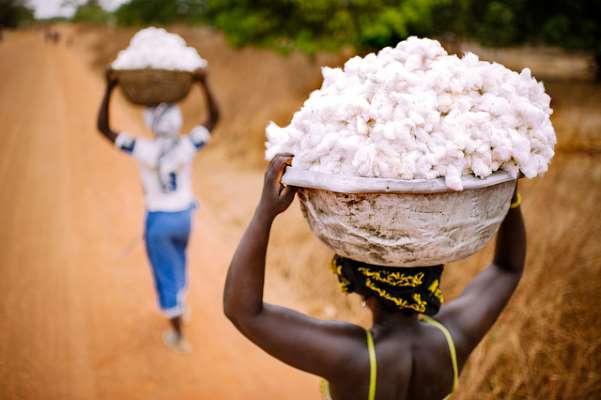
Accounting for 16 per cent of global exports, cotton remains an important export for Sub-Saharan Africa. Cotton production in the region has grown in recent years due to increased area under cultivation and improved yield, indicates the Organization for Economic Co-operation and Development (OECD) and the Food and Agriculture Organization’s (FAO). FAO’s market developments and mid-term projections for world cotton markets for 2022 to 2031 shows, area under cotton cultivation has increased due to a rise in cotton prices. Yet, cotton consumption across spinning mills in the Sub-Saharan Africa region remains limited as most produce is exported.
Export growth to boost market share
In the coming decade, exports from the region are projected to grow at around 1.7 per cent per annum with the region’s market share increasing by more than 1 per cent point to nearly 18 per cent compared to the base period. Textile and apparel exports from other countries like Ethiopia are also rising as processing capacities across the region are being enhanced. Driven by favorable economic conditions, expansion is boosting FDIs in the sector. This could also result in more mills of cotton in the long run and impact net export status.
In 2022, rising consumption and prices will continue to boost cotton prices in international markets. However, global demand may remain under pressure owing to the rising popularity of synthetic fibers, notably polyester.
Rising energy prices to impact cotton demand
FAO states, economic growth and urbanization will continue to impact per capita demand for cotton textiles in developing and emerging economies. Factors other than economic conditions in the developing world may impact global cotton consumption, production, and trade projections. Rising energy prices and the Russia-Ukraine war may impact demand in short term. The industry’s growth may also be affected by emergence of new COVID-19 variants and subsequent movement restrictions.
Adopt sustainable supply chains
FAO adds, raising of interest rates to contain inflation is likely to alter the cost of borrowing, hence investment plans in the sector. Growth in the sector could also be affected by providing of raw material to producers through textile recycling. To boost cotton demand, the industry needs to adopt sustainability standards in supply chains. They need to introduce measures to deal with effects of climate change including droughts and other adverse weather conditions.
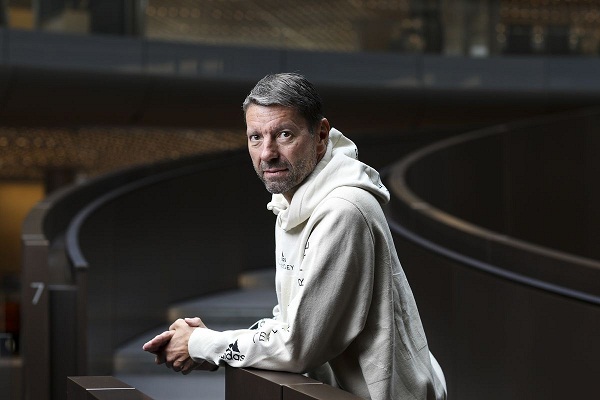
The Supervisory Board at adidas AG is ready to appoint a new CEO in 2023, as current CEO Kasper Rorsted relinquishes his position to a new successor during the year.
Strengthened brand’s market position
In partnership with the Supervisory Board and Management Board, Rorsted will play a vital role in ensuring a smooth transition of this process. During his tenure at adidas AG from 2016, Rorsted repositioned adidas AG as one of the most trustworthy brands in the sportswear and accelerated its digital transformation. He helped the company grow online sales by almost five times, notes Thomas Rabe, Chairman.
During Rorsted’s tenure Adidas doubled sales in the world’s largest market, North America. It also gained formidable advantage in sustainability besides increasing diversity, equity and inclusion throughout the company. The share of women engaged in top leadership positions also increased sharply.
Making a successful restart
Having successfully divested TaylorMade, CCM Hockey and Reebok, adidas AG is now focusing on its core brand adidas. Marked by several economic obstacles in the last three years due to the pandemic and geopolitical tensions, the brand is set to initiate CEO transition to help the company make a successful restart.
An iconic sportswear brand, adidas has achieved great heights in its space. The brand’s business remained significantly disrupted in the past few years due to some external factors. Kasper Rorsted states, “adidas is an iconic sports brand. As a company, we have achieved great progress in strategic areas of our business. I am proud of our achievements as a team. The past years have been marked by several external factors that disrupted our business significantly. It required huge efforts to master these challenges. This is why enabling a restart in 2023 is the right thing to do - both for the company and me personally.”
At the moment adidas business is growing almost 85 per cent and it aims to accelerate this growth across all markets and continue to operate without major disruptions in future.
- 1
- 2
- 3
- 4
- 5
- 6
- 7
- 8
- 9
- 10
US Cotton: Shifting dynamics amidst reciprocal tariffs and quality advantages
The US has long held a dominant position in the global cotton market, thanks to its reputation for producing high-quality... Read more
India’s textile and apparel industry sees mixed fortunes in FY25: Wazir Indices
India’s textile and apparel sector showed mixed results in FY25, with growth momentum visible in sales but profit metrics showing... Read more
UK charts course for circular fashion leadership with new CFIN roadmap
A new landmark report released by the Circular Fashion Innovation Network (CFIN) outlines major strides and a comprehensive roadmap for... Read more
The Unseen Cost of Fashion Returns: Undermining sustainability efforts
Fashion brands are increasingly vocal about their commitment to sustainability, proudly unveiling initiatives centered on recycled polyester, reduced water consumption... Read more
China's Luxury Crossroads: Consolidation or retreat for global giants?
For years, China has been the undisputed El Dorado for global fashion and luxury brands. A growing middle class, with... Read more
Fashion for Good and Arvind unveil Future Forward Factories in India to cut text…
Fashion for Good and Arvind Limited have launched the Future Forward Factories India initiative, a major push to reshape the... Read more
The Scope 3 Challenge: Unpacking the elephant in the emissions room
In the escalating global focus on combating climate change, businesses are under pressure to account for their carbon footprint. While... Read more
Right Size, Right Impact: Personalized fit weaving a sustainable future for fash…
With growing environmental consciousness, the fashion industry, long criticized for its detrimental impact, is looking for new and innovative ways... Read more
From Runway to Retail Shelf: Why fashion needs a dose of FMCG discipline
The fashion industry, often lauded for its artistry and emotional appeal, stands at an intriguing crossroads. While it captivates with... Read more
Global Sourcing Expo spotlights Australia's sustainable fashion growth amid supp…
Australia's demand for sustainable fashion is reaching new heights, driven by increasing consumer awareness and a rising wave of conscious... Read more


